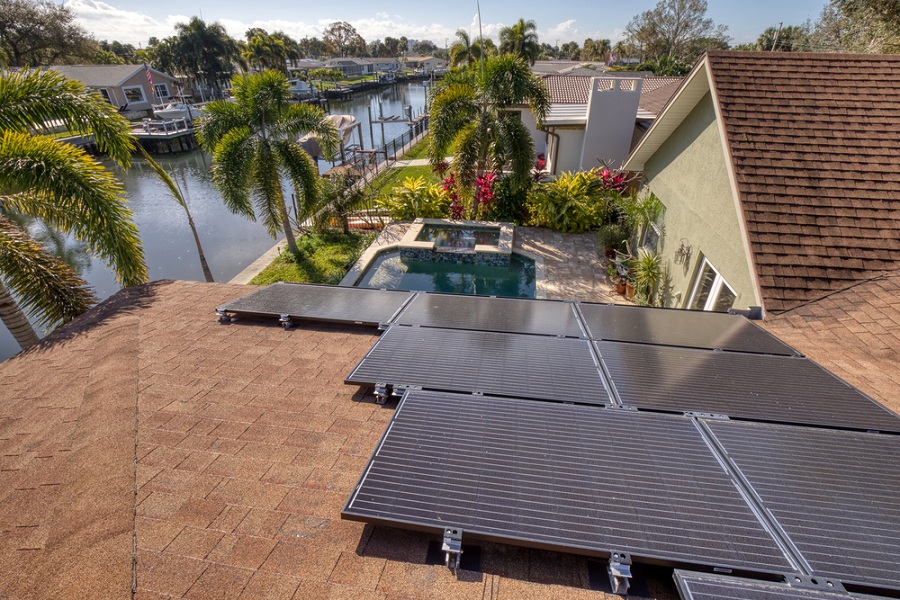Florida has been experiencing an increase in solar power installation due to its rising popularity among homeowners.
With falling prices, solar power's value proposition has been bolstered by the decline in the cost of solar cells. They're selling at an average of $2.57 per watt before government subsidies.
Nowadays, solar power systems in Florida are cheaper than ever, thanks to lower solar panel costs, federal tax credits, and state-funded loan programs.
What is the cost of installing a solar panel system in Florida?
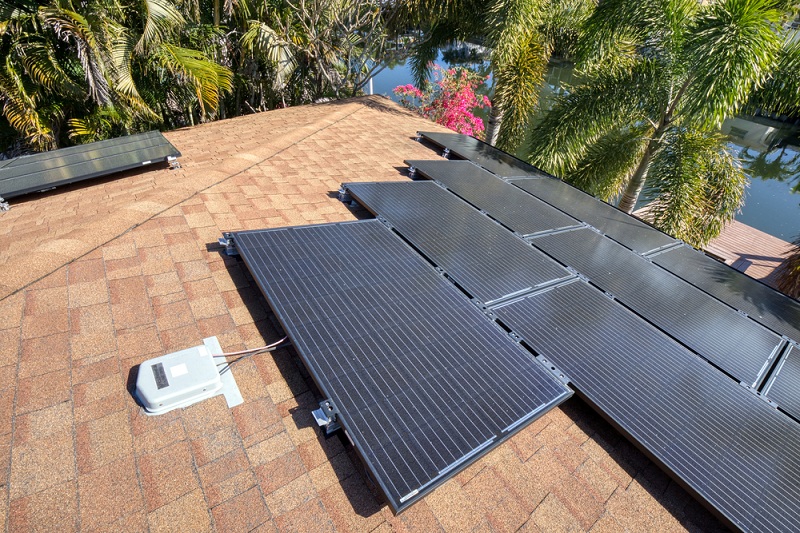
As of September 2022, the average price for solar panel systems in Florida was $2.58 per watt. A typical 5 kW solar panel installation costs $12,900 without considering state or federal government rebates or incentives.
After factoring in the 30 percent federal tax credit for solar energy systems, the cost drops to $9,030.
Even if that's a huge amount of money, you'll be able to save a lot once you consider all the incentives.
Solar energy costs less in Florida compared to national averages. Residential solar panel systems currently cost approximately $3.0 per watt.
What incentives exist for homeowners in Florida to install solar panels?
Currently, solar energy incentives for homeowners in Florida include the following:
What is Property Assessed Clean Energy (PACE program Florida)
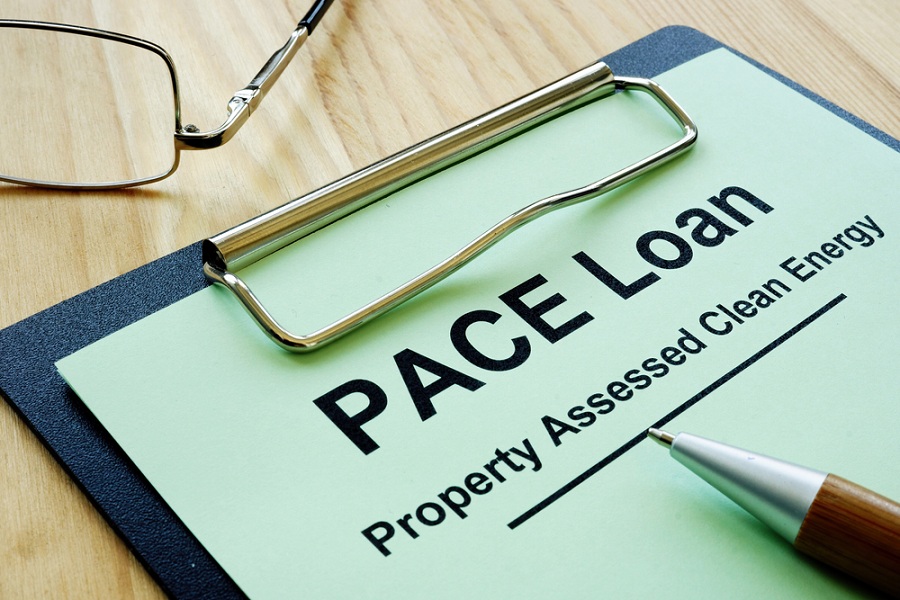
If you live in Florida, you may be able to get PACE financing for your solar project.
Property Assessed Clean Energy (PACE) Financings act similarly to loans, but instead of borrowing from banks, homeowners pay for their energy improvements by increasing their property taxes.
PACE financing isn't just for solar panels; it can be used for almost any energy efficiency upgrade. Any remaining mortgage balance can be transferred to the new homeowner if you sell.
However, PACE Financings put liens on your properties and can have higher interest rates than other types of loans, like Home Equity Lines of Credit.
PACE financing has been criticized for taking advantage of low-income consumers and is often recommended to be financed through conventional banks or solar loan programs.
What is the Procedure for Sign Up for PACE Florida?
You could ask your local county for details about any PACE programs they offer.
Another easier alternative is to contact your local solar installers. They can give advice and help you sort through the necessary documents.
How to Qualify For PACE?
You shouldn't have any problem qualifying for PACE if you're not behind on your taxes and mortgage payments and/or are not involved in bankruptcy.
What Is Florida Net Metering?

Solar incentives are available for homeowners who install solar panels. These include net metered systems, which allow you to sell excess energy back to the power company at the full retail price.
Net Metering: why is it important for Florida?
Florida has plenty of sunshine, which means your solar power system could be generating too much energy for your home at times throughout the year.
This additional energy goes back into the power grid. With net metering, your utility company compensates you at the rate they charge for electricity.
Each kWh of electricity generated by your rooftop solar panel reduces your monthly electric bill by 1 kWh.
By sizing your solar panels appropriately, you should be able to eliminate most or all of your electricity bills.
Does solar power get an exemption from property taxes and sales tax in Florida?
Solar power systems in Florida are exempted from property taxes and state/local taxes. The sales tax exclusion represents a savings of 6 percent of the upfront costs of a rooftop solar installation.
Meanwhile, the property exemption means ongoing reductions on your annual property taxes. When going solar, you'll get a boost to your house's value.
Not only will you save money by not having to pay for electricity, but you'll also benefit from the added value of having a green property.
Does Florida Offer Any Other Rebate Programs Or Tax Credit Programs?

The city of Longwood used to offer an incentive for people to install solar power systems, but this program has recently expired.
Unfortunately, another state tax credit is not offered for solar energy in Florida. The same thing applies to rebates.
Fortunately, with current incentives and recent advancements in manufacturing technology, the cost of solar energy for an average household in Florida has decreased dramatically.
What Is The Florida Solar Tax Credit?
For Florida, there aren't any specific state-based solar tax incentives.
Most likely, when people talk about the Florida solar tax incentives, they mean the 30 percent solar tax credit, the federal investment tax credit (or tax incentive) by the government.
It’s a federal tax credit available in every state. It lets homeowners who install solar energy systems claim 30% of the system's costs as tax deductions.
Specifically, the federal income tax credits available through the United States government offer a 30% reduction in your solar power system's cost.
Suppose your tax liability (including any interest) is less than 30 percent of your solar energy system's total costs. In that case, you can roll the remainder of the payment into the next year's bill. You may be able to do so for up to five years if your tax liability is less.
What steps must I take to get the solar energy tax credits?
When you purchase your solar panels, complete Form 5695 when filing your tax returns, if you're looking for a way to claim solar tax credits, here's a step-by-step guide you can follow.
What savings can be made by Purchasing A Solar Panel System?
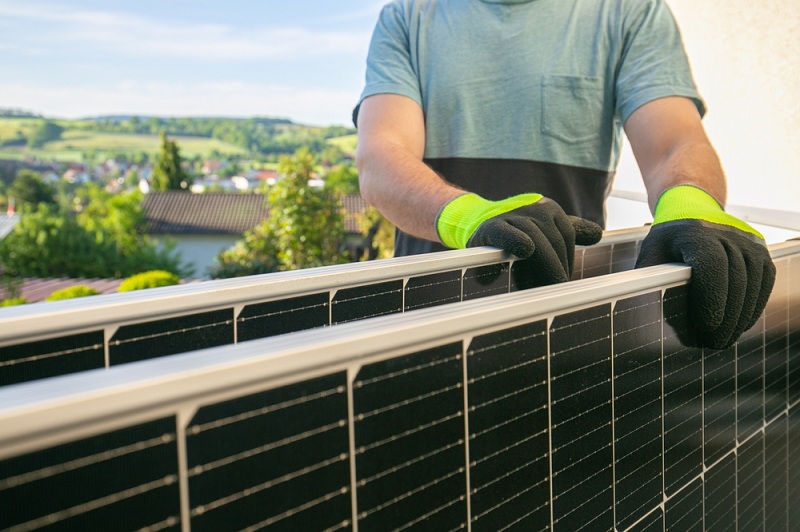
Installing a properly-sized renewable power system in Florida can save homeowners about $78,000 in avoided electricity bills. It's about average in the United States.
Here's an example showing the potential annual solar savings for an average house in Hardee County, FL.
For an average home in Hardees County, Florida, solar energy costs and savings were estimated at $143 per month.
Enter your details into the Florida Solar Savings Calculator to get an estimate tailored for your house.
Your savings will vary depending on many factors, such as solar panel prices, energy company rates, and the weather where you live.
Your total savings will depend upon your household’s electrical usage – the more power you consume, the more you will benefit from installing solar panels.
If you want to know how much energy you could save by installing solar panels at your house, use the Florida solar power calculator below.
What Is The Payback Period For Solar Installations In Florida?
A solar power system in Florida usually takes about ten (10) years to become economically self-sufficient, but the payoff period may be as short as five (5) years.
Factors that could affect your repayment period include:
Suppose you're trying to save money by reducing your electricity use. In that case, you need to minimize your consumption so that your solar system sends more power into the grid than your utility company pays you for.
The hours you use the most power make an important difference in your solar repayments.
When you're at home during daylight hours, when your solar panels are generating the most electricity, they'll be exporting less power to the grid.
If you're using solar power, the less energy you send to the electric company for them to use, the less they need to give you back in net metering credits.
Even though it's cheaper than not having solar, this will increase your electricity costs.
Do I Need To Install A Solar Battery Systems In Florida?
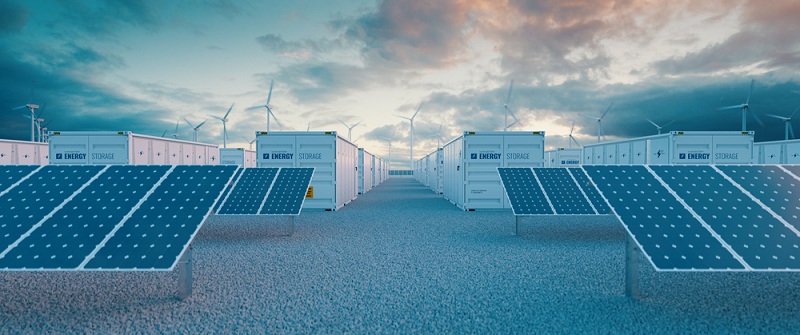
If Tesla Powerwall has gotten so much attention, you probably wonder whether energy storage is right for you.
Since net metering (also known as net billing) is available for solar power systems in Florida, the high initial costs of adding a battery storage system aren't worthwhile.
Net metering doesn't store any extra energy; instead, it stores the monetary cost of your excess power; batteries don't offer enough financial benefits to justify their cost.
However, there are two cities — Orlando and Jacksonville — where homeowners qualify for rebates for installing solar batteries.
You can receive up to $2K back in Orlando and $2K in Jacksonville. Here are some additional details for each program:
Do Solar Panels Resist Extreme Weather?
Most reputable solar panel manufacturers will conduct wind tests in 140-mile-per-hour (i.e., hurricane-force) winds.
It is extremely unlikely for your solar panel system to be at risk of damage from severe weather conditions.
Hail storms aren't something you need to worry about. International standards require solar panels to be compliant with IEC61215.
A solar energy system needs to withstand a direct blow by a ball of hail 25 millimeters in size, traveling at 51.4 miles per hour.
Some high-end brands of solar power systems are designed to withstand large hailstones at high speed.

